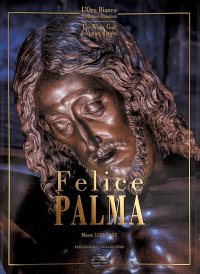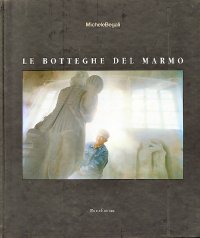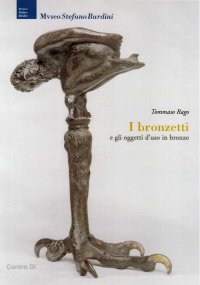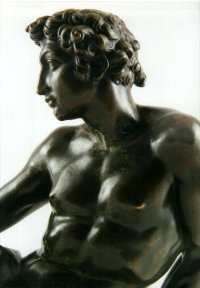Felice Palma. Massa 1583-1625. Collezione / Collection.
Testi di Andrei Cristina, Ciarlo Nicola, Federici Fabrizio, Claudio Casini e Sara Ragni.
Testo Italiano e Inglese.
Pontedera, 2024; ril. in cofanetto, pp. 289, ill. b/n e col., tavv. b/n e col., cm 24,5x34.
(L'Oro Bianco. Straordinari Dimenticati. The White Gold Forgotten Masters).
prezzo di copertina: € 160.00
|
Libri compresi nell'offerta:
Felice Palma. Massa 1583-1625. Collezione / Collection.
Testi di Andrei Cristina, Ciarlo Nicola, Federici Fabrizio, Claudio Casini e Sara Ragni.
Testo Italiano e Inglese.
Pontedera, 2024; ril. in cofanetto, pp. 289, ill. b/n e col., tavv. b/n e col., cm 24,5x34.
(L'Oro Bianco. Straordinari Dimenticati. The White Gold Forgotten Masters).
OMAGGIO (prezzo di copertina: € 160.00)
Le botteghe del marmo
Testo Italiano e Inglese.
Ospedaletto, 1992; ril., pp. 153, 10 ill. b/n, 60 ill. col., cm 24x29.
(Immagine).
OMAGGIO (prezzo di copertina: € 34.49)
Museo Stefano Bardini. I Bronzetti e gli Oggetti d'Uso in Bronzo
A cura di Nesi A.
Firenze, 2009; br., pp. 191, 102 ill. b/n, 7 ill. col., cm 17x24,5.
(Museo Stefano Bardini).
OMAGGIO (prezzo di copertina: € 30.00)
Bronzetti e Rilievi dal XV al XVIII Secolo
Bologna, 2015; 2 voll., ril. in cofanetto, pp. 729, ill., tavv. col., cm 21,5x30,5.
OMAGGIO (prezzo di copertina: € 90.00)
The Glass of the Architects. Vienna 1900-1937
Franz Rainald
Skira
Venice, Island of San Giorgio Maggiore, 18 April - 31 July 2016.
Testo Italiano e Inglese.
Milano, 2016; cartonato, pp. 328, 350 ill. col., cm 24x31,5.
Altre edizioni disponibili: Edizione italiana 88-572-3195-X
ISBN: 88-572-3244-1 - EAN13: 9788857232447
Soggetto: Arte Vetraria
Periodo: 1800-1960 (XIX-XX) Moderno
Testo in: 

Peso: 0.57 kg
In fact in the early 20th century a group of young architects, designers and fine arts and architecture students developed a special interest in the process of glassmaking. Many of them were to win fame as leading figures in Viennese Modernism, such as Josef Hoffmann, Koloman Moser, Joseph Maria Olbrich, Leopold Bauer, Otto Prutscher, Oskar Strnad, Oswald Haerdtl and Adolf Loos. They paved the way to the first pioneering developments in 20th-century glass production as they worked with the furnaces in order to gain a thorough understanding of the material. The collaboration between architects and designers and the introduction of their innovations to production created the style of Viennese Glass, found in new projects such as the Wiener Werkstätte or the Austrian Werkbund

Etica Coniugale. Per un Rinnovamento della Morale Matrimoniale
In gioco. Illusione e divertimento nell'arte italiana 1850-1950
Proarch Studium 2030. La città degli studenti/Call for projects
Officina 1922. Una Mostra alle Origini della Fortuna del Barocco











